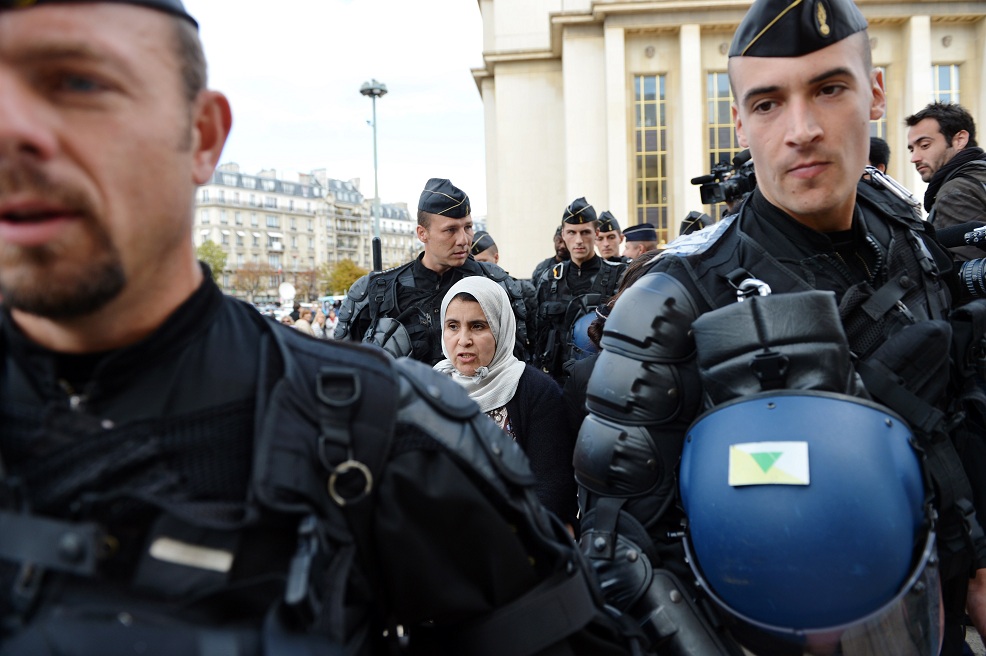TEHRAN: A defiant Iran on Friday is to enter fresh nuclear talks with the six world powers showing no signs of a softening of Tehran’s hardline stance on its controversial atomic program.
President Mahmoud Ahmadinejad and other top officials have raised the nuclear rhetoric in the run-up, as Tehran faces Western allegations that it is making an atom bomb, a charge the Islamic republic denies.
"They say: ‘We want negotiation’… You are free to choose the path (of either cooperation or confrontation), but bear in mind that by adopting the old path (of confrontation), you will face a more scandalous defeat,"
Ahmadinejad told a cheering crowd on Wednesday in the city of Yazd.
"You could not stop us from being nuclear … The Iranian nation will not retreat an inch. The nuclear issue is over from the Iranian point of view."
His outburst came as Iran prepares to sit with the six world powers — Britain, China, France, Russia, the United States and Germany — on Friday and Saturday in Istanbul to discuss Tehran’s nuclear program.
Iran’s atomic chief Ali Akbar Salehi has gone a step further, insisting
Tehran will not even discuss its "nuclear dossier" at the Istanbul meeting, which is the top agenda for the world powers.
Salehi also said the Islamic republic is pushing ahead "very strongly" with its uranium enrichment program, the most controversial part of its nuclear drive.
But observers say Iran has always taken a hardline stance ahead of nuclear talks.
Its position is now backed by progress in the atomic field — be it increasing the stock of enriched uranium or raising the level of enrichment itself to 20 percent despite UN and Western protests.
Iran’s nuclear negotiator, Saeed Jalili, has likened the defence of Tehran’s position to standing up for the rights of all signatories of the nuclear Non-Proliferation Treaty.
"The Islamic Republic of Iran will not retreat one iota from its (nuclear) rights," Jalili, who is to lead Tehran’s delegation in Istanbul, told a group of foreign envoys after they toured two of Iran’s atomic sites last week.
His hardline stance comes despite Iran’s key allies Russia and China snubbing the Islamic republic by rejecting the invitation to visit the nuclear facilities.
A European diplomat told AFP on condition of anonymity that the opening of the sites, including the main uranium enrichment plant at Natanz, to foreign envoys days before the Istanbul talks was a "smart tactical move by Iran and one aimed at dividing the world powers."
"But Iran too must have been surprised when Russia and China refused to be part of it."
Moscow and Beijing had also backed a fourth set of UN sanctions against Tehran in June.
Iranian analysts say it is Tehran’s strategy to try to lessen the focus on the controversy around its nuclear program during such dialogues with the world powers.
"Iran does not want its nuclear file to be number one issue on the negotiating table," Mohammad Saleh Sedghian, head of the Tehran-based Arabic Centre for Iranian Studies, told AFP.
"What Iran wants is to focus on common issues and once it reaches a desired result on that, it may then allow the talks to cover its nuclear file."
His views were echoed by a top aide to Jalili, Abolfazl Zohrevand, who said the Istanbul talks should focus on global nuclear disarmament, non-proliferation and nuclear cooperation.
"If the West wants to deal with Iran’s nuclear case separately, Istanbul will not be its place, because Iran’s nuclear program is transparent and supervised by the agency (International Atomic Energy Agency)," he said.
Sedghian said Tehran’s increasingly hardline stand was also the result of a lack of trust in the West, with US Secretary of State Hillary Clinton’s visit to the Gulf earlier this month deepening suspicions in Iranian minds.
Clinton toured the Arab states in the Gulf, urging them to stay focused on sanctions against Iran and assessing that despite close economic ties with Tehran they had been "very responsive" to enforcing punitive measures.
Sedghian said the key lay in trust to achieve a breakthrough.
"Both sides need to win each other’s trust, and in order to achieve it both sides need to make concessions," he said. "The trip made by Ms Clinton to the region did not help."

